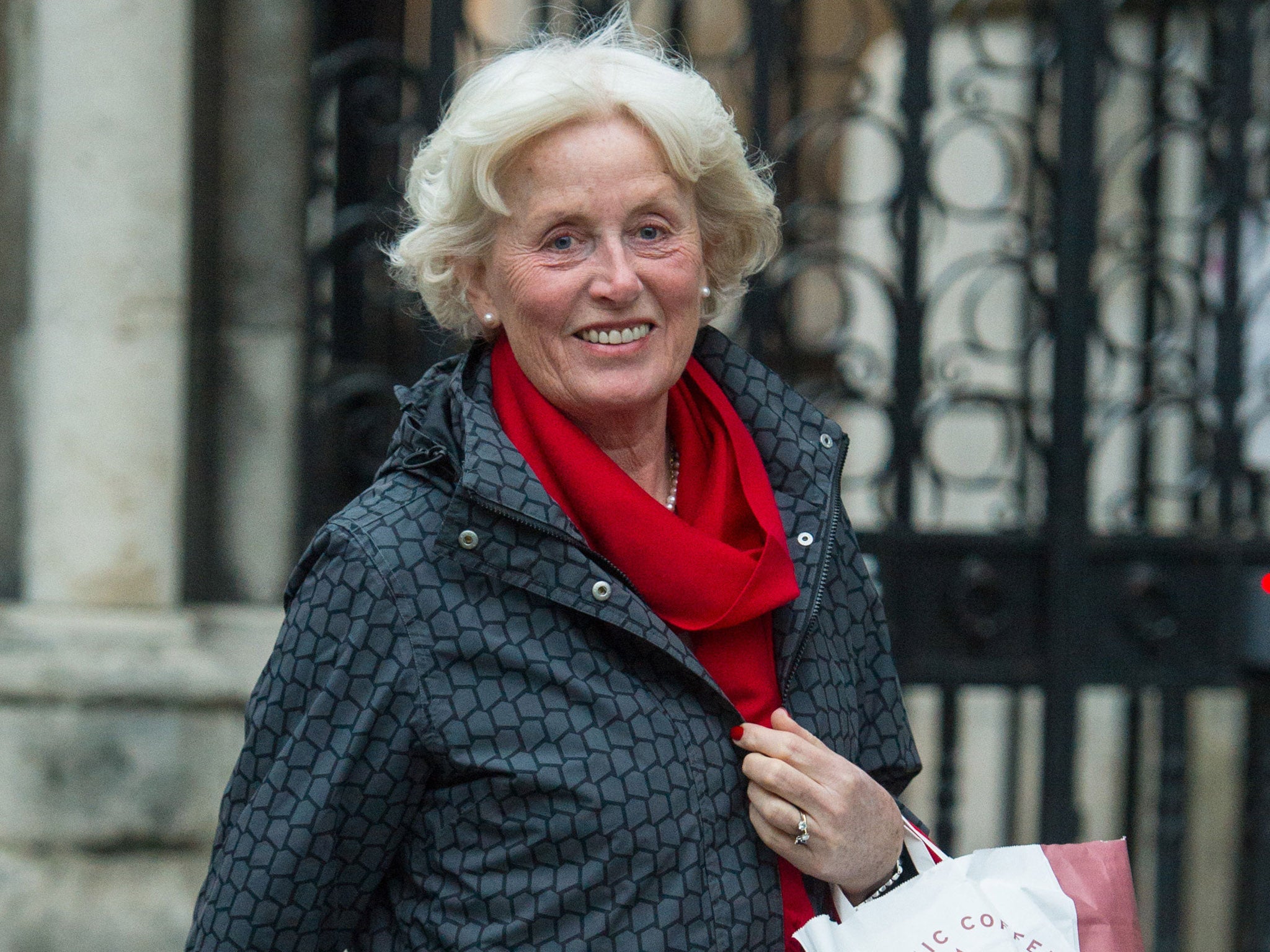Woman seeking divorce over 'loveless marriage' takes her case to the Supreme Court
Development follows 'locked-in' wife Tini Owens' failure to persuade High Court and Court of Appeal judges to allow her to leave her husband

A woman who was refused permission to divorce her husband is to take her case to the Supreme Court.
Tini Owens, 66, has so far failed to persuade judges in the High Court and Court of Appeal to allow her to divorce Hugh Owens, 78, by claiming their 39-year marriage had broken down following an affair she had several years ago.
In March, she told the court he was an “old-school” husband and said his “continued beratement” over the affair was “unreasonable behaviour” and thus grounds for divorce.
But Mr Owens said he had forgiven her infidelity and believed the pair should stay together to “enjoy 30-odd years of shared experiences”.
In a highly unusual move, the family court judge, Robin Tolson, in February refused to grant the divorce petition.
However, yesterday, Ms Owens was granted permission to appeal in the case, which has reignited calls for no-fault divorce to be implemented in England and Wales.
Mr Tolson ruled in March that Ms Owens' allegations against her husband were “exaggerated” and “minor altercations of a kind to be expected in a marriage”, adding that the case was “an exercise in scraping the barrel”.
As a result, Ms Owens was unable to end the marriage immediately and told she would have to wait five years to divorce without her husband’s consent.
At the time, Sir James Munby, the president of the family division, told the Court of Appeal: “We cannot interfere with Judge Tolson’s decision [in the family court] and refuse the wife the decree of divorce she sought.
“Mr Marshall complains that the effect of Judge Tolson’s judgment is to leave the wife in a wretched predicament, feeling, as she put it in her witness statement, unloved, isolated and alone, and locked into a loveless and desperately unhappy marriage which, as the judge correctly found, has, in fact if not in law, irretrievably broken down."
He added: “Parliament has decreed that it is not a ground for divorce that you find yourself in a wretchedly unhappy marriage, though some people may say it should be."
Ms Owens’ lawyer, Philip Marshall QC, condemned the ruling and called for a reform to divorce law.
“The husband, in his attitude and his manner and the way he did and said things, treated her in a childlike and patronising way and thought that she ought to comply with his will," he told the court.
"The wife, who is nearly 66, is now a ‘locked-in’ wife. She cannot get divorced unless the husband changes his mind and agrees. There doesn’t have to be violence or threats of violence or gambling or drinking or shouting.
“There is a cumulative effect of what may be regarded as inconsequential conduct, which may justify a finding that it is unreasonable to expect her to stay with him."
Only 1 per cent of all divorce petitions in England and Wales are contested and it is highly unusual for a judge to deny a petition from a spouse who wishes to dissolve a marriage.
Divorce law requires the petitioner to prove fault for an immediate divorce but it can be granted two years after separation if both parties agree and after five years if only one side wants to end the marriage.
Join our commenting forum
Join thought-provoking conversations, follow other Independent readers and see their replies
Comments